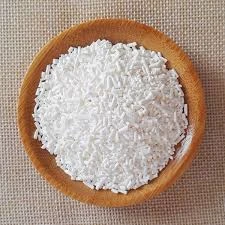
Exploring the Role and Impact of Food Additives in Modern Cuisine
Understanding Food Additives Their Importance and Impact
Food additives have become a ubiquitous part of the modern food supply chain. As people increasingly seek convenience and variety in their diets, the use of additives in food production has surged. This article will explore what food additives are, their types, benefits, concerns, and the regulatory frameworks that govern their use.
What Are Food Additives?
Food additives are substances added to food products to enhance their quality, flavor, texture, appearance, or shelf life. These additives can be natural or synthetic and may serve a wide range of purposes, including preservation, flavoring, coloring, and improving nutritional value.
Types of Food Additives
1. Preservatives These additives help to prolong the shelf life of food by preventing spoilage caused by microorganisms such as bacteria, molds, and yeasts. Common preservatives include sodium benzoate and potassium sorbate.
2. Flavoring Agents Flavor enhancers, such as monosodium glutamate (MSG), are added to intensify the natural flavors of foods. Natural flavorings, derived from herbs, spices, and other plants, are also widely used.
3. Coloring Agents Artificial and natural colorants are added to enhance the visual appeal of food. For example, annatto is derived from the seeds of the achiote tree and is used to impart a yellow-orange hue to various products.
4. Emulsifiers These substances help mix ingredients that typically do not combine well, such as oil and water. Lecithin, derived from soybeans or egg yolks, is a common emulsifier used in salad dressings and margarine.
5. Stabilizers and Thickeners These additives improve the texture and consistency of food products. For instance, xanthan gum and guar gum are commonly used in sauces and dressings to create a desirable thickness.
6. Nutritional Additives Certain additives are incorporated to enhance the nutritional content of food. Vitamins and minerals, like vitamin D and iron, are often added to cereals and dairy products to improve their health benefits.
Benefits of Food Additives
The use of food additives brings numerous benefits to both manufacturers and consumers
a food additive

- Extended Shelf Life Preservatives prevent spoilage and food waste, ensuring products remain safe and edible for longer periods.
- Improved Safety Certain additives support food safety by controlling pathogens and minimizing risks of foodborne illnesses.
- Consistency and Quality Additives help maintain consistent flavor, color, and texture across batches of food products, ensuring consumers receive a reliable product.
- Nutritional Enhancement Food fortification through additives can address dietary deficiencies in populations, helping improve public health.
Concerns and Misconceptions
Despite their benefits, food additives often face scrutiny and suspicion from consumers. Some concerns include
- Health Risks Some individuals worry about the potential health risks associated with consuming synthetic additives. Studies have shown links between certain additives and health issues; however, regulatory agencies monitor and assess these substances for safety.
- Allergies and Sensitivities Certain food additives can trigger allergic reactions in sensitive individuals. It's essential for consumers to read labels carefully and be aware of their specific allergens.
- Natural vs. Synthetic Debate The preference for natural ingredients has led to a misconception that synthetic additives are inherently harmful. However, many synthetic additives are rigorously tested for safety and can be used in moderation without adverse effects.
Regulatory Framework
To ensure the safety of food additives, many countries have established regulatory bodies, such as the U.S. Food and Drug Administration (FDA) and the European Food Safety Authority (EFSA). These organizations evaluate the safety of food additives before they can be used in food production, setting acceptable daily intake levels and establishing rigorous testing protocols.
Conclusion
In conclusion, food additives play an essential role in the contemporary food landscape. They enhance food's safety, stability, and nutritional value while providing consumers with a range of choices. Nonetheless, it is crucial for individuals to stay informed about the additives in their food, understand their purposes, and make educated choices that align with their dietary needs and preferences. As science and technology evolve, the future of food additives will likely continue to advance, balancing the demands of consumers with the need for safe and nutritious food products.
-
Understanding Synthetic Rubber OptionsNewsApr.27,2025
-
Trichloroisocyanuric Acid: Essential for Clean and Safe WaterNewsApr.27,2025
-
Sodium Dichloroisocyanurate: Key to Safe Water TreatmentNewsApr.27,2025
-
Sodium Acid Pyrophosphate: Essential in Modern Food ProcessingNewsApr.27,2025
-
Essential Water Treatment ChemicalsNewsApr.27,2025
-
Denatured Alcohol and Its Industrial UsesNewsApr.27,2025
-
The Versatile Uses of Sodium BicarbonateNewsApr.24,2025
Hebei Tenger Chemical Technology Co., Ltd. focuses on the chemical industry and is committed to the export service of chemical raw materials.
-

view more DiethanolisopropanolamineIn the ever-growing field of chemical solutions, diethanolisopropanolamine (DEIPA) stands out as a versatile and important compound. Due to its unique chemical structure and properties, DEIPA is of interest to various industries including construction, personal care, and agriculture. -

view more TriisopropanolamineTriisopropanolamine (TIPA) alkanol amine substance, is a kind of alcohol amine compound with amino and alcohol hydroxyl, and because of its molecules contains both amino and hydroxyl. -

view more Tetramethyl Thiuram DisulfideTetramethyl thiuram disulfide, also known as TMTD, is a white to light-yellow powder with a distinct sulfur-like odor. It is soluble in organic solvents such as benzene, acetone, and ethyl acetate, making it highly versatile for use in different formulations. TMTD is known for its excellent vulcanization acceleration properties, which makes it a key ingredient in the production of rubber products. Additionally, it acts as an effective fungicide and bactericide, making it valuable in agricultural applications. Its high purity and stability ensure consistent performance, making it a preferred choice for manufacturers across various industries.











